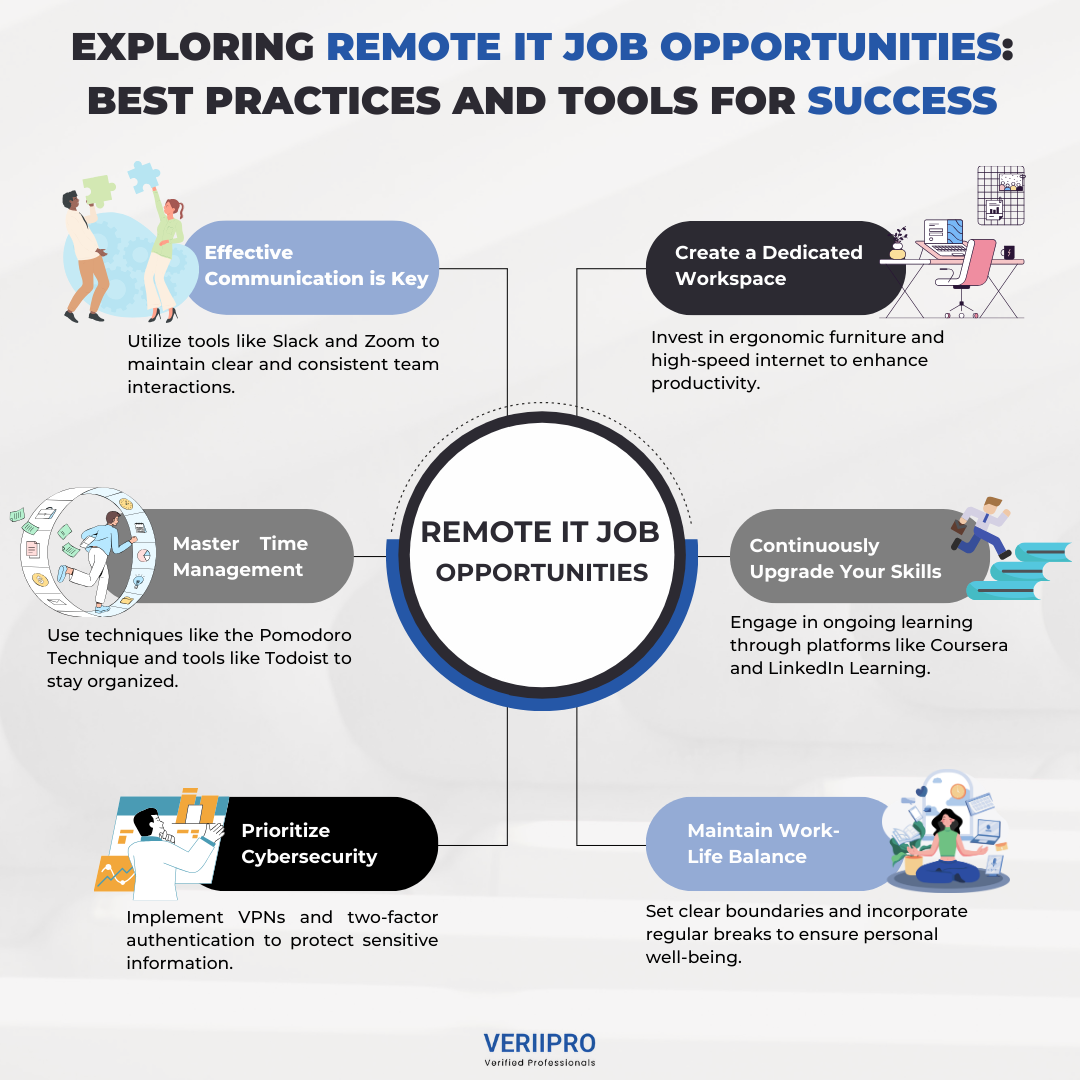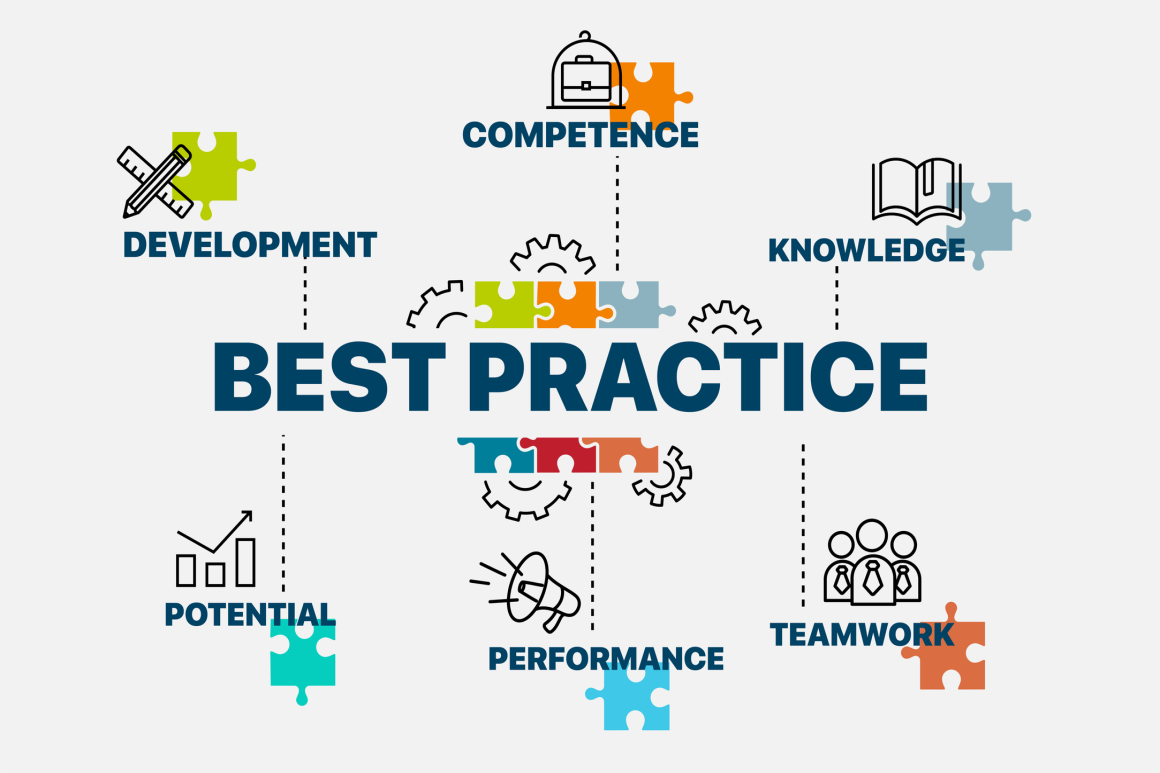Exploring Remote IT Job Opportunities: Best Practices and Tools for Success
In recent years, the landscape of the IT industry has undergone a significant transformation, with remote work becoming a staple rather than an exception. As we navigate through 2024, the demand for remote IT professionals continues to surge, offering unprecedented opportunities for both seasoned experts and newcomers alike. Whether you’re seeking flexibility, a better work-life balance, or the chance to work with global teams, remote IT jobs present a compelling career path. This article delves into the best practices and essential tools that can help you thrive in the remote IT job market.

1. Cultivate Strong Communication Skills
Effective communication is the cornerstone of successful remote work. Without the advantage of face-to-face interactions, clear and concise communication becomes even more critical.
- Use Dedicated Communication Platforms: Tools like Slack facilitate instant messaging, enabling quick and organized team interactions.
- Regular Video Meetings: Platforms such as Zoom ensure that team members stay connected and engaged through face-to-face virtual meetings.
Utilize tools like Slack for instant messaging, Zoom for video conferencing, and Asana for project management to stay connected with your team. Regular check-ins and updates ensure that everyone is aligned and projects stay on track.
2. Set Up a Productive Workspace
Creating a dedicated workspace is essential for maintaining productivity and separating work from personal life.
- Invest in Ergonomics: Comfortable furniture can prevent physical strain and enhance focus.
- Ensure Reliable Technology: High-speed internet and the right hardware are crucial for uninterrupted work.
Invest in ergonomic furniture, high-speed internet, and necessary hardware to create an environment conducive to focused work. Tools like Trello can help organize tasks, while Noise-Cancelling Headphones can minimize distractions, allowing you to concentrate on your tasks efficiently.
3. Master Time Management
Remote work offers flexibility, but it also requires disciplined time management.
- Establish a Routine: Consistent work hours help maintain productivity and structure.
- Prioritize Tasks: Focus on high-impact tasks to maximize efficiency.
Establish a daily routine, set clear goals, and prioritize tasks to stay productive. Techniques such as the Pomodoro Technique can enhance focus and prevent burnout. Applications like Todoist and RescueTime can help track your time and manage your tasks effectively.
4. Continuously Upgrade Your Skills
The IT industry is ever-evolving, and staying updated with the latest technologies and trends is crucial.
- Enroll in Online Courses: Platforms like Coursera offer a wide range of courses to keep your skills current.
- Earn Certifications: Certifications can validate your expertise and enhance your resume.
Engage in continuous learning through platforms like Coursera, Udemy, and LinkedIn Learning to acquire new skills and certifications. Participating in webinars, workshops, and online communities can also provide valuable insights and networking opportunities.
5. Leverage Collaboration Tools
Collaboration tools are indispensable for remote teams.
- Streamline Project Management: Tools like Microsoft Teams facilitate seamless project tracking and team collaboration.
- Share Documents Efficiently: Google Workspace allows for easy sharing and real-time collaboration on documents.
Tools such as Microsoft Teams, Google Workspace, and GitHub enable teams to collaborate efficiently, regardless of their geographical locations. Familiarizing yourself with these tools can enhance your ability to work effectively within a remote team.
6. Prioritize Cybersecurity
Working remotely often involves accessing sensitive information from various locations, making cybersecurity a paramount concern.
- Use Secure Connections: Implementing VPNs ensures that your data remains protected.
- Enable Multi-Factor Authentication: Adds an extra layer of security to your accounts.
Implement robust security measures such as using Virtual Private Networks (VPNs), enabling two-factor authentication, and regularly updating software to protect against cyber threats. Understanding best practices in cybersecurity can not only safeguard your data but also make you a more valuable asset to potential employers.
7. Network and Build Professional Relationships
Building a strong professional network is essential for career growth, especially in a remote setting.
- Engage on Professional Platforms: LinkedIn is a powerful tool for connecting with industry peers.
- Attend Virtual Events: Participating in online conferences can expand your professional network.
Engage with industry professionals through platforms like LinkedIn, attend virtual conferences, and participate in online forums related to your field. Networking can lead to new job opportunities, collaborations, and valuable mentorships that can propel your career forward.
8. Maintain Work-Life Balance
One of the advantages of remote work is the flexibility it offers, but it can also blur the lines between personal and professional life.
- Set Clear Boundaries: Define your work hours to ensure personal time is respected.
- Incorporate Breaks: Regular breaks help maintain mental and physical well-being.
Set boundaries by defining your work hours, taking regular breaks, and disconnecting from work-related tasks during your personal time. Practices such as mindfulness and regular exercise can also contribute to maintaining a healthy work-life balance.
9. Prepare an Impressive Remote Resume
Your resume is often the first impression you make on potential employers.
- Highlight Remote Skills: Emphasize abilities like self-motivation and proficiency with remote tools.
- Showcase Relevant Experience: Include any past remote work to demonstrate your capability to work independently.
Tailor your resume to highlight your remote work skills, such as self-motivation, time management, and proficiency with remote collaboration tools. Include any relevant remote work experience and emphasize your ability to deliver results independently. A well-crafted resume can significantly increase your chances of landing your desired remote IT job.
10. Stay Adaptable and Open to Change
The remote work environment is dynamic, requiring adaptability and a willingness to embrace change.
- Embrace New Technologies: Stay updated with the latest tools and platforms.
- Be Open to Feedback: Continuous improvement fosters professional growth.
Stay open to new technologies, methodologies, and ways of working. Being adaptable not only enhances your resilience but also makes you more attractive to employers who value flexibility and innovation. Resources like Harvard Business Review offer valuable insights on managing and embracing change effectively.
Looking for opportunities in IT? VeriiPro is here to help!









